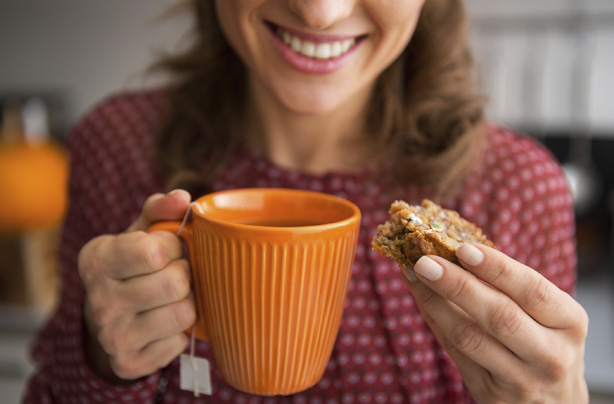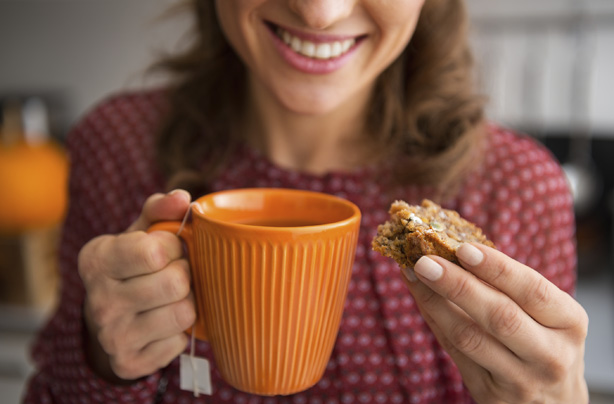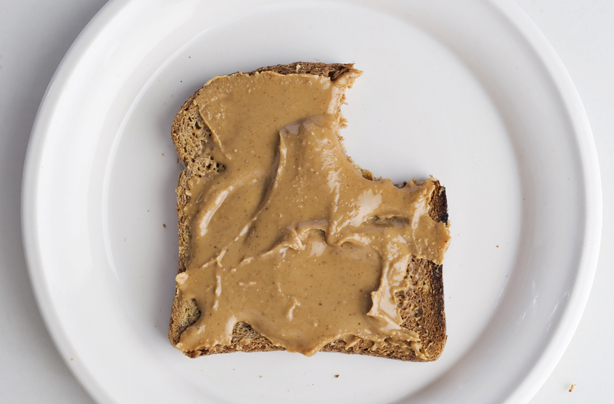The 9 daily habits you're doing that are putting you at risk of diabetes
How many of these are you guilty of?


Type 2 Diabetes is on the rise, and as one of our nation's greatest health crises we've rounded up the daily habits that could be contributing to your likelihood of developing it.
It's worth knowing that there are two main types of diabetes, type 1 and type 2.
Type 1 develops quickly, and you're likely to be born with a pre-disposition to it, rather than it being caused by lifestyle choices or diet. Type 1 diabetes is more likely to occur in children and young adults, although it has been recorded in people of all ages.
If Type 1 diabetes is left untreated, it 'can cause a number of different health problems', say the NHS. This is due to large amounts of glucose potentially damaging blood vessels, nerves and organs.
Symptoms include feeling thirsty, having to go to the bathroom a lot and weight loss.
Type 2 diabetes causes a person's blood sugar level to become too high, which often makes people feel constantly tired, and can cause serious health problems long term, especially if left untreated. Blindness, strokes and kidney failure are all health problems associated with Diabetes Type 2.
Type 2 diabetes can go longer without diagnosis, because the signs are more subtle, but it is the most common type in the UK and is more likely to be caused by your diet. 80% of people diagnosed with type 2 diabetes are overweight, which is why it's important to address diet as a preventative measure. Other potential causes or risks include your age or if one of your relatives have had diabetes.
GoodtoKnow Newsletter
Parenting advice, hot topics, best buys and family finance tips delivered straight to your inbox.
The symptoms for type 2 diabetes are similar to type 1 with thirst, urinating frequently and weight loss all being signals.
To help decrease your liklihood of developing type 2 diabetes, here are the daily habits you should be nipping in the bud...
1. Hitting snooze on your alarm

We all love sleep, but too much of the stuff could in fact be damaging our health. Research has linked too much snoozing to a whole host of medical problems, including diabetes.
It can be hard to know how much sleep we should have exactly, but guidelines say for adults between 26 and 64, 7-9 hours is about right.
2. Putting sugar in your tea

Sugar is often touted as one of the main causes of Type 2 diabetes. Diabetes UK say that it's the calories in sugar that can put you at risk of diabetes, by contributing to weight gain. They say 'you gain weight when you take in more calories than your body needs, and sugary foods and drinks contain a lot of calories.'
Diabetes UK recommend no more than five teaspoons of sugar a day, across all food and drinks. That means if you're a two-teaspoons of sugar kind of tea drinker, just three cups will tip you over the edge of your allowance - and that's without anything else.
3. Eating toast for breakfast

If you're a fan of white, sliced bread then you're not going to like this news. Highly processed foods (which often mean white varieties of carbs) are generally low in fibre and high in things like sugar - which cause a 'greater spike in blood sugar,' according to Healthline.
While carbohydrates are a healthy part of a balanced diet, too many of them can cause weight gain, if you're getting more calories from them than you can burn off. Try to stick to wholegrain varieties if possible.
4. Adding salt on your dinner

Salt can contribute to the causes of diabetes by rising blood pressure.
There's nothing quite like salt and vinegar on your chips, we get it. But try to make salt a treat, rather than the norm - and avoid cooking with it if you can. An adult's salt intake shouldn't go above 6g, which translates as a slightly heaped teaspoon roughly. This isn't much if you consider most foods already contain salt.
5. Having 'seconds'

Tempting as it might be, resist the urge to eat the kids' leftovers at dinner time, or reach for a second portion. Obesity is the main cause of Type 2 diabetes. Try to stick to rough guidelines when it comes to potion size. For carbs, that's about as much as your clenched fist, for veggies about the size of your two palms and for protein like meat or fish it's about the size of one palm.
6. Putting off the gym

We know there's 'always tomorrow' and we feel the same, but getting up and doing regular exercise can significantly reduce your risk of developing diabetes.
Cardio work will keep your weight down, which in turn should keep your blood glucose, blood pressure and cholesterol levels healthy.
For the majority of healthy adults the Department of Health recommends at least 150 minutes of moderate aerobic activity a week, like walking, or a minimum of 75 minutes a week of more vigorous exercise, like running or swimming.
7. Your night cap

A glass of wine once the kids go to bed might be nice, but it could also be putting you at higher risk of developing diabetes unfortunately. Aside from the high number of calories in some of our favourite tipples, drinking can also reduce your body's sensitivity to insulin, which in some cases leads to type 2 diabetes.
Drinking alcohol can also cause a crash in blood sugar levels so can make your glucose dip.
No need to go cold turkey though, drinking in moderation is okay. Diabetes UK recommend never drinking on an empty stomach and trying to limit your intake.
The guidelines say 2-3 units per day for women and 3-4 units per day for men is the limit. For reference, there are one and a half units of alcohol in a small glass of wine (25ml). Why not try swapping your glass of Sauvignon for a slim line and tonic? Much lower in calories!
8. Friday night takeaways

Calorie-laden and packed full of sugar and salt, takeaways aren't exactly renowned for being healthy. Their contribution towards weight gain could put you at risk of diabetes. Why not make yourself a 'fakeaway' instead? If you make your own, you know it'll be lower in sugar and salt, and you'll know exactly what you're eating. Or opt for smarter choices when you do order from the takeaway. Try staying away from anything fried and consider the veggie options, too!
9. Eating out

Researcher Geng Zong, from the Harvard School of Public Health, tracked the health of almost 100,000 middle-aged men and women for up to 26 years. He analysed the diets and lifestyles of the men and women and also quizzed them on where they ate their meals.
By the end of the study more than 9,000 of the volunteers had developed diabetes. The study showed that those who ate their evening meal at home five to seven times a week were 15 per cent less likely to develop diabetes than those who only ate at home twice a week.

Rosie is an experienced food and drinks journalist who has spent over a decade writing about restaurants, cookery, and foodie products. Previously Content Editor at Goodto.com and Digital Food Editor on Woman&Home, Rosie is well used to covering everything from food news through to taste tests. Now, as well as heading up the team at SquareMeal - the UK's leading guide to restaurants and bars - she also runs a wedding floristry business in Scotland called Lavender and Rose.